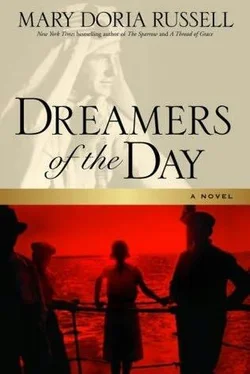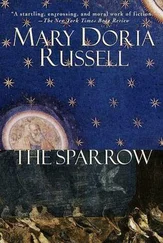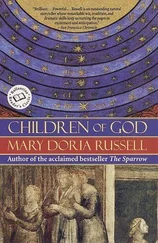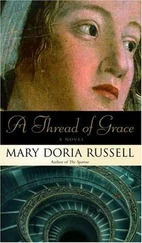And in the end, I was glad that Mumma’s wisdom prevailed. Studying at Oberlin College was a great opportunity, and teaching was a profession that suited me well. Indeed, everything went according to her plans for Lillian and me—with a single small detour when I enrolled in Professor Douglas Cutler’s course “History and the Old Testament.” No one was more surprised than I when Professor Cutler found something in me to admire. And no one was less surprised than I when he found even more in darling Lillie to desire.
Douglas was in his thirties, a doctor of divinity, and a match for Lil-lie’s intellect and Christian conviction. The moment I introduced them, it was love at first sight. They made such a handsome couple, full of plans and aspirations. Shortly after their engagement, Douglas informed us that he’d been offered a position at the American Mission School at Jebail, just north of Beirut in Syria, which in those days stretched all the way to the Mediterranean seacoast. Lillian’s excitement over the news could hardly be contained, but Mumma wept and pleaded with Douglas to turn the offer down. She could hardly bear to think of her favorite child so far away, she told him. She had been so happy to believe that she would have a son-in-law to count on, what with her own dear Howard dead and her wicked son, Ernest, gone. It was awful to hear her distress, but Douglas had already signed the agreement, and a contract is a contract, as Mumma understood.
As for me, well, gracious! It had long been my dream to visit Egypt and the Holy Land, and now my very own sister would be living there, as the wife of a scholar and missionary! What could be better? I would miss Lillie desperately, of course, but she promised to write home every single week and tell me all about her travels and her life.
The wedding was to be in June, a few days after graduation. Lillie insisted that I serve as maid of honor. Eventually I gave in, though I was careful to remove my glasses and keep my eyes downcast for the wedding portrait, presenting neither my profile nor my eyes to spoil the photographs.
Lillie and Douglas spent their honeymoon walking in the footsteps of Jesus, and afterward, they took up residence in Jebail. That September, I left Cedar Glen as well, moving a few miles away to Cleveland, where I had accepted an appointment with the public school system. As you can imagine, Mumma was distraught at being left all alone, so I had a telephone installed for her and made sure the billing went to me. “You can call as often as you like,” I told her.
“And let those operators listen in?” she sniffed. “No lady would do such a thing!”
She was getting on in years by then and reluctant to introduce an outlandish modernity to her home. Even so, I believe she was somewhat consoled to know that if she had a need pressing enough to summon a daughter, I was close by and lived right on the trolley line.
The district had assigned me to Murray Hill School in the Cleveland neighborhood known to all as Little Italy. The children in my classroom were mostly immigrants. Some of their fathers were quite rough, and nearly all the parents were illiterate. Few believed that education was worthwhile beyond the fourth grade.
“Pushcart Tony,” Mumma called that kind, though most of them were day laborers, not fruit and vegetable vendors. “Foreigners are taking this country over,” she’d say.
“They didn’t sail on the Mayflower, ” I’d answer, “but they came here as soon as they could.”
“Well, I don’t know about that, ” Mumma always said.
This remark was never capitulation, you must understand; nor was it ever an admission of ignorance. You’re wrong, she meant, but I don’t care to argue about it.
“And don’t think I haven’t noticed—that school is right next to a settlement,” she let me know. Alta House wasn’t really a settlement, of course. It was more of a community center with a playground and a gymnasium with a swimming pool. It was named for John D. Rockefeller’s daughter Miss Alta Rockefeller, and it really was quite respectable, though Mumma never entirely believed that.
Each year, I am proud to say, there were two or three children who truly blossomed in my classroom. Often these were the most resistant in September: cocky little boys who wanted to look tough and were afraid to fail, or awkward little girls who hardly dared believe that they’d be good at anything. With no children of my own to love, I had to be careful about letting my emotions run away with me. If my affection and attention were noticed, the boys and girls I liked best would be called “teacher’s pet” and there’d be trouble for them on the playground. I quickly learned to be evenhanded in the classroom.
And I worked hard to expand all my students’ horizons beyond Mayfield Road and Little Italy. We took field trips to the art museum, for example, and whenever a building was going up downtown, I’d try to get the architect to visit us. All the children were excited to see the postcards and letters I received from Lillie, and I organized Old World geography lessons around her mail. Each week, the student whose marks had most improved from one examination to the next would be rewarded with a postcard or a carefully loosened stamp from one of Lillie’s envelopes.
When the war in Europe began, geography took on a different importance. The Ottoman Empire seemed likely to collapse at any moment, throwing the Middle East into turmoil. Lillie and Douglas came home, of course—they had their two boys to think of. Douglas, stoutly middle-aged by then, was awarded a full professorship at our alma mater, Oberlin.
When the war ended in November 1918, our family seemed to have reached a safe harbor, apart from the loss of poor Ernest to flu in the autumn of 1918. At thirty-eight, I believed that all the big questions of my life had been answered. I would never marry. I would earn my living as a teacher. When the time came, I would move back to Cedar Glen and care for Mumma in her old age.
And yet, I will confess to you, from time to time I envied my youthful self—that girl who could still dream and want more, who could still imagine someone who had never materialized, except during those brief weeks before Douglas fell in love with Lillie. However briefly, Douglas had seen my true self, and he had not laughed or sneered or sighed. He was only being kind, I suppose. But kindness is so important, wouldn’t you agree?
It was early March in 1919 and I was correcting a pile of arithmetic papers when my landlady, Mrs. Motta, called me downstairs to receive a telephone call that changed my life. I expected to hear Mumma’s voice, but it was Lillie on the line, and she was so excited! “Agnes, do you remember Neddy Lawrence?”
I racked my brains but no one came to mind, so she reminded me of her letters from Jebail. She’d written of an archaeology student, a British undergraduate who planned to tramp around the Middle East alone, photographing crusader castles for his thesis. He and Lillie had become great friends as he studied practical Arabic with her colleague at the mission school—a young Christian lady whose name was Fareedah el-Akle.
“Neddy’s grammar wasn’t strong, but his memory was excellent and he absorbed Arabic vocabulary very quickly,” Lillie recalled. After her return to the United States in 1914, she and Neddy had exchanged letters, the most remarkable of which was his request that she purchase for him a Colt .45 automatic pistol, which he meant to carry into combat. “Handguns are difficult to obtain in England,” he wrote in explanation.
“We lost track of him after that,” Lillie told me, “but he not only survived the war, he’s become a hero! We called him Ned, but his name is really Thomas Edward Lawrence. Lawrence, Agnes,” Lillie repeated, exasperated. “Doesn’t that ring any bells?”
Читать дальше
